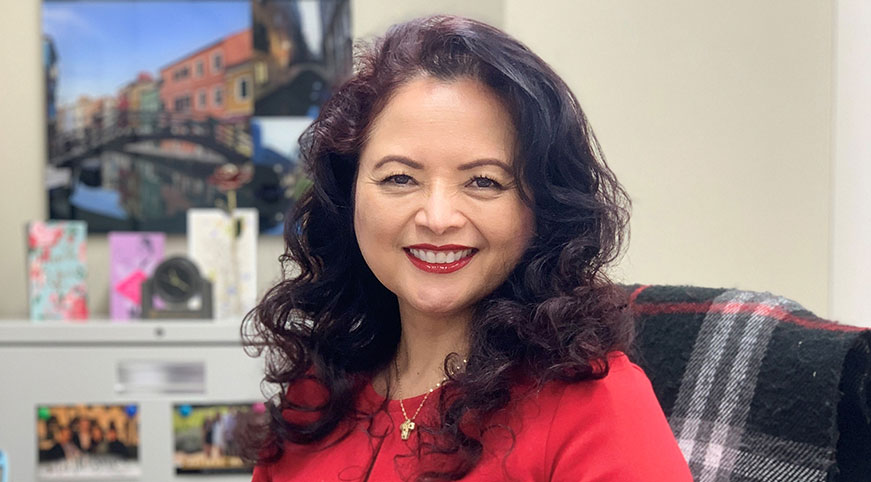Posted by Divya Sathyanarayanan
Health care educators and nursing professional developers at CHA HPMC play an important role in educating our clinical and non-clinical staff to provide the highest level of care. We interviewed Lourdes Casao, Director of Education at CHA HPMC, to understand the importance of nursing professional development and how she impacts patient care.
Why is Nursing Professional Development important to nurses, patients, and healthcare organizations?
Nursing Professional Development is important because it improves our critical thinking, interpersonal and technical skills, and helps identify opportunities to grow. It provides frequent feedback and evaluation of outcomes. Our team plays a critical role in preparing nursing practitioners for current and future roles. We also help individuals cope and evolve with the ever changing healthcare environment.
Describe your journey as the Director of Education at CHA HPMC?
Teaching and learning have always interested me and these qualities were very helpful as an adult critical care nurse. During this phase of my career, I surrounded myself with colleagues who were also interested in professional development and who later joined me in many special education projects. My interest and initiative to take on an increasing number of responsibilities surrounding career, professional, and organizational development led me to the educator role and later to a senior leadership role in education.
What are some of your key responsibilities?
My responsibilities include the constant environmental scanning for learning opportunities, including regulatory requirements, evidence-based practice changes, and quality improvement needs; developing curriculum; facilitating learning events; evaluating program outcomes; and implementing program changes base on feedback. I also collaborate with schools and nursing professional organizations for learning and development opportunities of the organization.
As an educator, how do you constantly improve your skills?
Florence Nightingale said, “Nursing is a progressive art such that to stand still is to go backward.” I am a life-long learner and learning facilitator. I demonstrate this by keeping up with literature, asking pertinent questions, and community practices. I am constantly communicating with my peers in the healthcare industry to ensure we are meeting, if not exceeding, community standards. Early on in my career, I ditched the know-it-all attitude and adopted a learn-it-all attitude.
How does your role impact patient care?
As the Director of Education, I develop programs that help prepare nursing practitioners to provide safe, high quality patient care.
Can you share some tips and strategies to help nursing professionals advance in their career?
- Make a plan for your career development
- Surround yourself with professionals who are committed to advancing in their careers
- Build your network:
- Join a professional organization based on your specialty and interest
- Join your alumni association
- Ask questions and be observant
- Find a mentor to learn more about your areas of interest
- Seek certifications to build upon your skills
- Attend conferences to learn about the latest developments and keep yourself updated
 ENGLISH
ENGLISH KOREAN
KOREAN Spanish
Spanish RUSSIAN
RUSSIAN Armenian
Armenian FILIPINO
FILIPINO Chinese (Simplified)
Chinese (Simplified) Chinese (Traditional)
Chinese (Traditional)

최신댓글